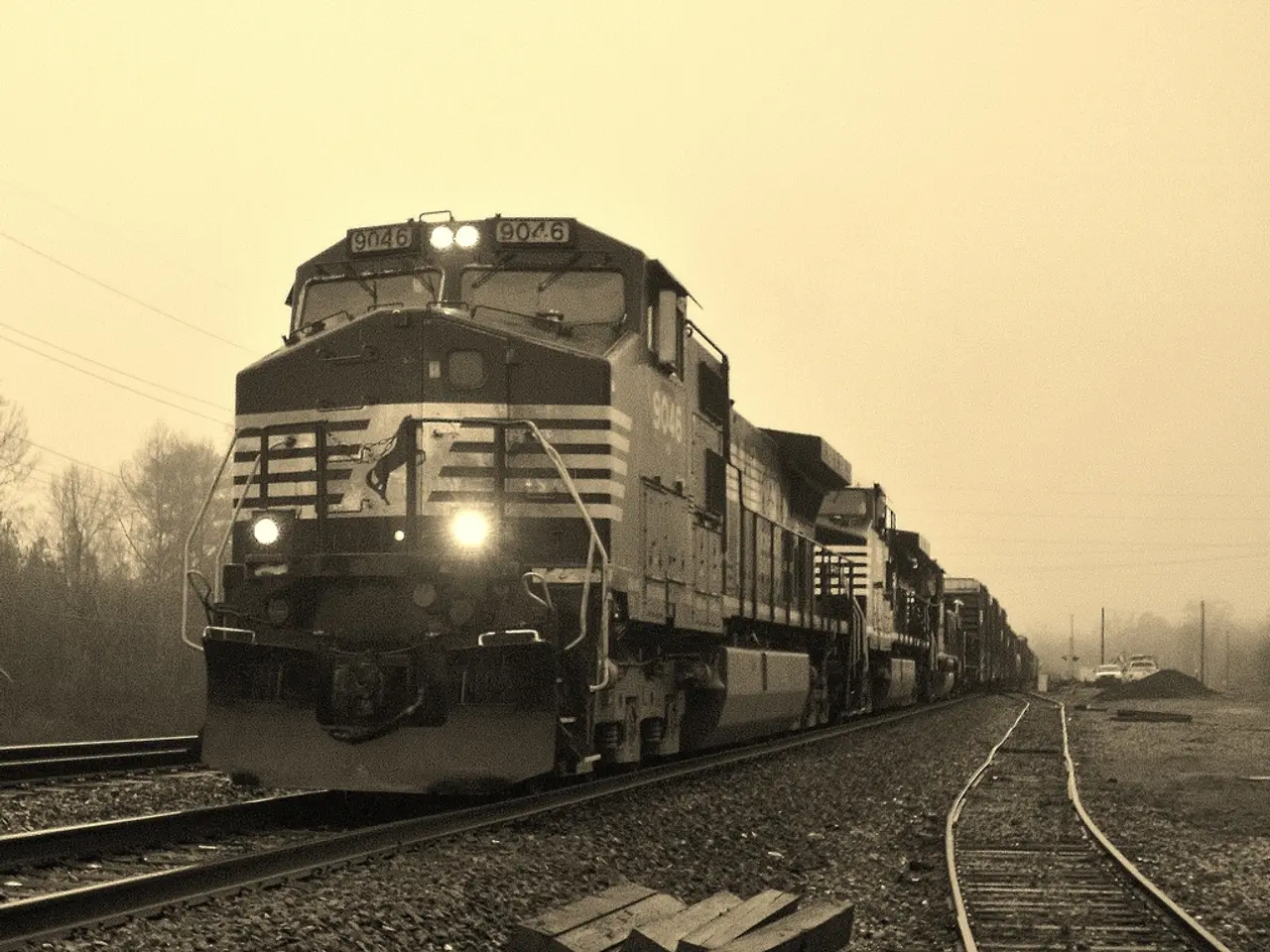NRW anticipates potential billion-dollar expenses from the trade agreement - Billionaire Pounds of Tax Revenue Potentially Jeopardized in NRW
The EU-USA trade deal, while averting the worst-case scenario of 30% tariffs on European products imported into the USA, presents a complex situation for North Rhine-Westphalia (NRW) with its strong industrial and export base.
Key impacts include industrial exports facing uncertainty due to tariff fluctuations. The deal has reduced US tariffs on EU products from a potential 30% to 15%, which tempers short-term tariff risks for NRW exporters, especially in sectors like automotive and chemicals. However, these tariffs remain higher than the earlier baseline 10%, and the chemicals industry in NRW is concerned that even 15% tariffs will make EU products less competitive against US producers, potentially eroding market share in a sector where NRW has considerable presence.
Energy purchases increase pressure on local industry as the EU agreed to purchase $750 billion worth of US energy products, including LNG and oil. This shift might indirectly affect NRW’s chemical and manufacturing industries reliant on energy inputs, potentially increasing costs or changing supply chains.
Export demand remains fragile, influencing regional growth. The Bundesbank reported Germany’s industrial production and export demand are weak but slightly improving. Since NRW is Germany’s export-heavy industrial hub, weak demand and tariff risks impose downside pressures on its economy.
Mona Neubaur, the Economics Minister of North Rhine-Westphalia, stated that the EU's trade agreement with the USA will require the European economy to swallow some bitter pills to avoid a trade war. She also emphasized the need for Europe to invest in its competitiveness and strengthen its security and independence.
The state government of North Rhine-Westphalia estimates a loss of around one billion euros for the economy in the first twelve months after the agreement comes into effect. European car imports, previously taxed at 2.5%, will now be affected by the new tariff rate. Only a limited number of goods will no longer incur duties upon import under the new trade deal.
In summary, NRW faces a complex situation where the EU-USA deal avoids the worst-case 30% tariffs but imposes a still elevated 15% tariff level, dampening export competitiveness. Energy purchase commitments may alter supply conditions for NRW industries. The overall impact is cautious optimism but persistent risks for the export-dependent regional economy, with potential negative effects on industrial output and growth prospects in the near term.
- The Commission's proposal to extend the agreement period raises concerns within the chemical industry in North Rhine-Westphalia, a region known for its strong industrial base, as higher tariffs could make EU products less competitive against US ones, potentially impacting its market share in this sector.
- The EU's agreement to purchase $750 billion worth of US energy products might affect NRW's chemical and manufacturing industries, as rising energy costs or altered supply chains could strain these industries that are heavily reliant on energy inputs.
- The EU-USA trade deal has repercussions reaching beyond just the tariff fluctuations affecting industrial exports, as Mona Neubaur, the Economics Minister of North Rhine-Westphalia, acknowledged that Europe needs to focus on boosting its competitiveness, strengthening its security, and increasing independence to navigate this complex, risky trade situation.




